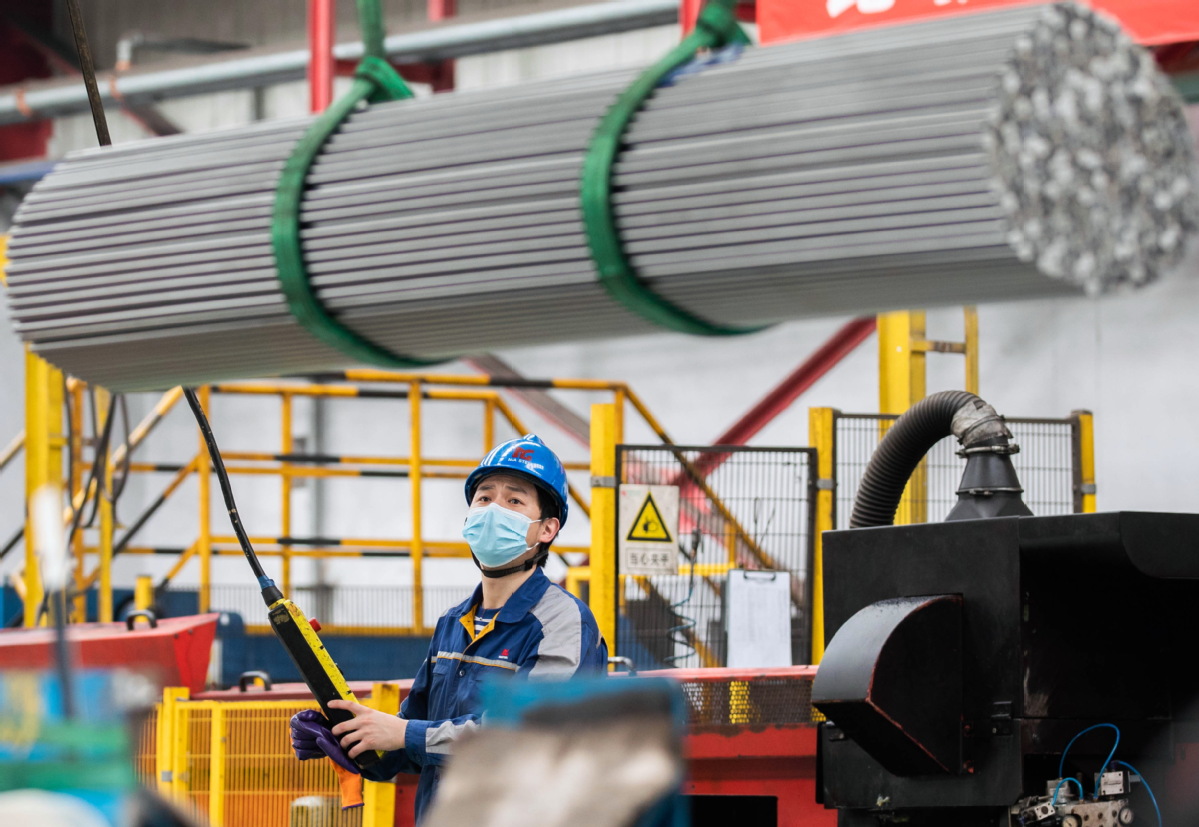
A technician at a steel production line of Magang Group, which is part of China Baowu Steel Group, in Ma'anshan, Anhui province. (Photo: China Daily)
In March 2018, the Donald Trump administration decided to impose additional tariffs of 25 percent on steel imports and 10 percent on imported aluminium products. The pretext was preserving national security. The legal basis was Section 232 of the US Trade Expansion Act of 1962.
The panel reports the World Trade Organization released on Friday in the cases brought by China, Norway, Switzerland and Turkey, titled "United States — Certain Measures on Steel and Aluminium products", concluded the US practice violated global trade rules. "Pursuant to Article 19.1 of the DSU (the WTO's Dispute Settlement Understanding), the Panel recommends that the United States bring its WTO-inconsistent measures into conformity with its obligations under the GATT 1994," according to the reports. Rather than rethinking the problematic US approach to international trade, which is increasingly protectionist and unilateralist and thus inviting criticism from allies, partners and competitors alike, Washington has condemned the WTO reports and refused to change course.
In a statement published on Friday, US Assistant Trade Representative Adam Hodge rejected the WTO ruling and argued "issues of national security cannot be reviewed in WTO dispute settlement … The United States will not cede decision-making over its essential security to WTO panels".
Calling the WTO "ineffective" and the panel reports "flawed", the US official went a step further, saying, "These WTO panel reports only reinforce the need to fundamentally reform the WTO dispute settlement system." — To the US' liking, of course.
What needs to be fundamentally reformed is Washington's open disregard of the set rules that have governed global trade over the past decades to guarantee fair trade.
All the Friday reports by WTO expert panels pointed out it was Washington's national security argument that was flawed. The additional duties the Trump administration imposed were not inflicted during a war or other emergencies in international relations, they found. Therefore, it was wrong for the US government to undermine its trade commitments citing the WTO's exception clauses.
The US move has been challenged by multiple countries because it substantially broadened the definition of a national security threat, and thus constitutes a threat to all trading partners as well as normal international trade.
Washington has been vocal about its commitment to a rules-based international order. The unilateral duties, along with the massive new subsidies for green technologies provided under the recent Inflation Reduction Act, show its commitment to that is subject to those rules being to its advantage.
As usual, the US is coveting small gains while ignoring the great losses that it will incur if it continues to undermine the rules-based international order that it so volubly professes to uphold.


